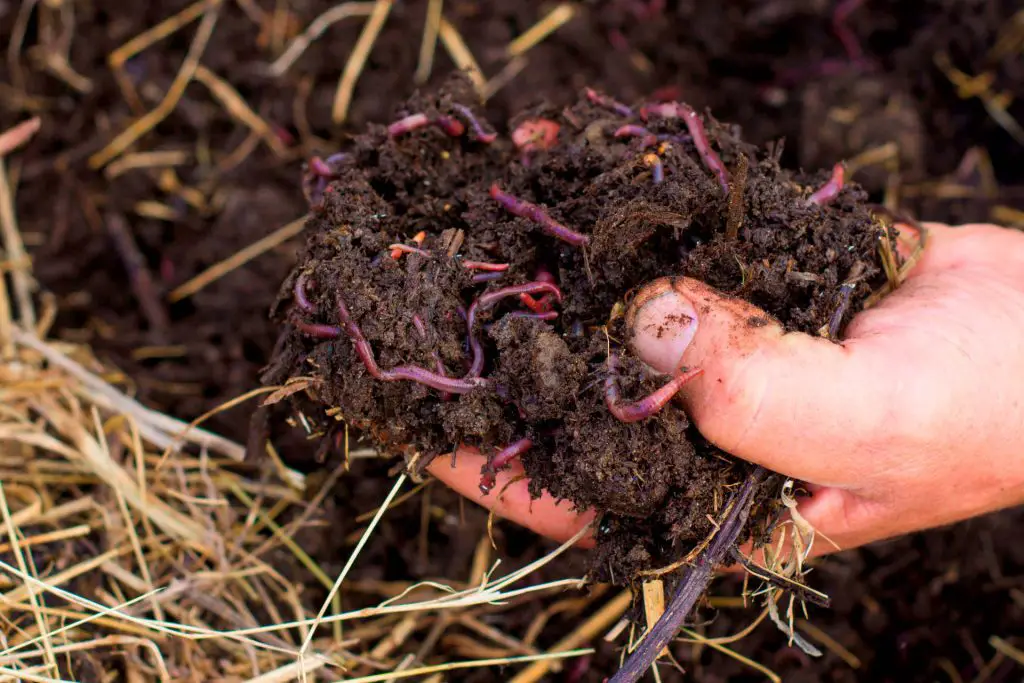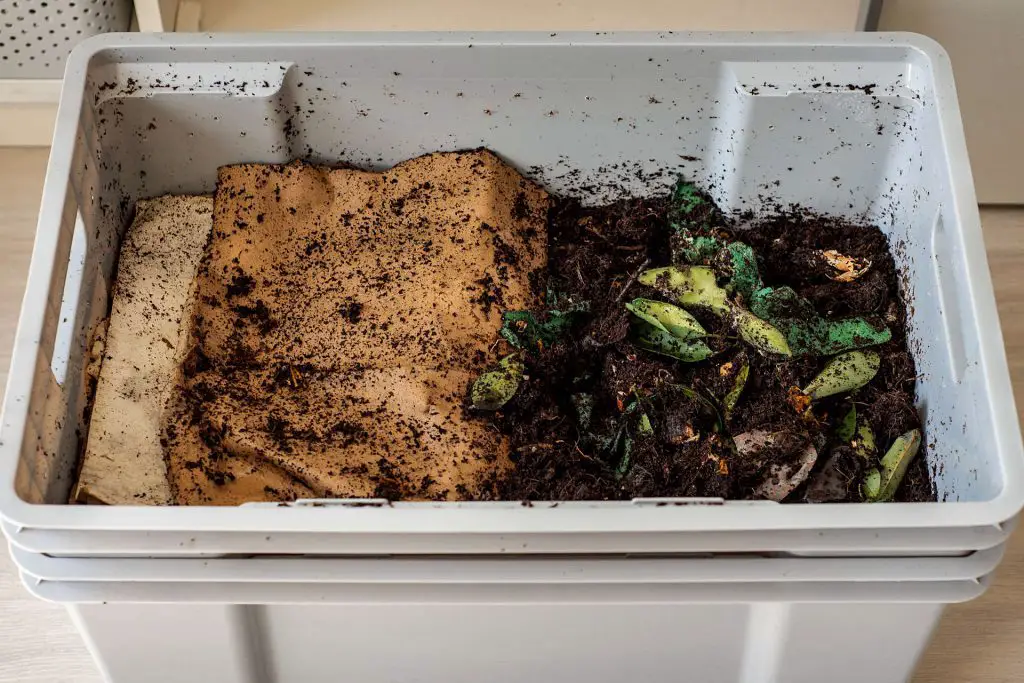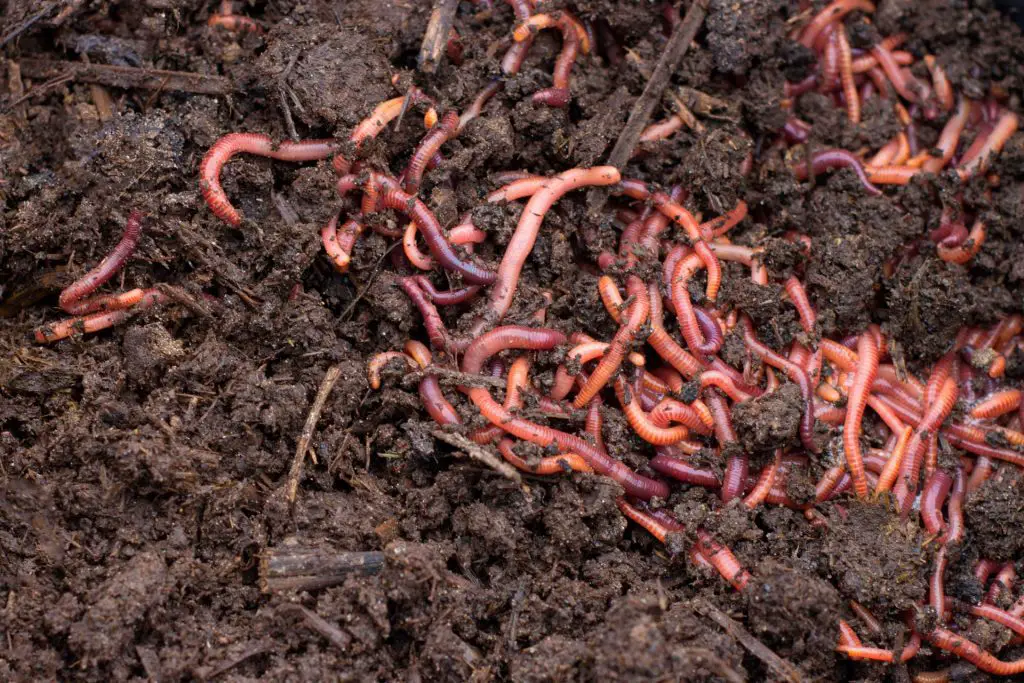The Benefits of Vermicomposting and Why You Should Use It
Vermicomposting is an environmentally sustainable process that helps in waste management, improving soil quality and reducing soil erosion, improving drainage, controlling pests, increasing crop yields, and reducing greenhouse gas emissions. In addition, it is a highly efficient process and one of the fastest ways to produce finished compost using a relatively passive method.
Are you wondering what all the fuss is about with vermicomposting? Vermicomposting is a process of using earthworms to decompose organic matter and extract valuable nutrients that are then used by plants.
Not only are there countless benefits to vermicomposting, but it’s also a very efficient way of dealing with waste. It is an incredibly effective way of making organic fertilizer from the decomposing remains of plants and kitchen scraps.
It is a completely natural way of turning them into a sustainable source of nutrients for your garden and flower pots, without polluting the environment. This is just one of a number of reasons to include vermicomposting as part of your composting strategy. We shall look at some of the others below.
The Benefits of Vermicomposting

Vermicomposting is the process of turning kitchen scraps and organic materials into valuable fertilizer for your plants. Not only does this help reduce waste, but it’s also excellent for the environment. There are though, a number of specific benefits that make vermicomposting stand out in relation to other composting and environmentally friendly ways of dealing with waste in a sustainable way.
These include both environmental and growing-related advantages that benefit, farmers gardeners, and the soil ecosystem in general. Amongst these include soil health and a reduction in chemical fertilizer use and cost that makes your garden more sustainable.
It is a Sustainable Practice
Vermicomposting is a composting process that can be continually repeated to deal with food and other organic waste in a fully sustainable way that is positive for the environment. It helps reduce the amount of organic waste and kitchen waste that is deposited in landfill sites each year, reducing the methane that would otherwise be emitted into the atmosphere.[1]
It Results in The Production of Compost More Rapidly
Vermicomposting is one of the most efficient ways to compost – it produces more compost in less time than most other composting methods. In general, the vermicomposting process will take around 3-4 months, but this timeframe is dependent on factors such as temperature, moisture content, size of the container and ultimately having a sufficient number of worms.
However, this timeframe is still much faster than traditional composting methods, which can take months or even years to complete.
It Contributes to The Reduction of Greenhouse Gases
Vermicomposting is a great way to reduce greenhouse gas emissions and recycle organic materials. By using the natural decomposers in the soil, we are helping to create valuable compost that can be used in gardens and landscaping projects. Additionally, by recycling organic matter, vermicomposting helps improve our soil structure and supports plant growth.
It Contributes to The Reduction of Food Waste
Food waste is a major challenge that needs to be solved in order to ensure sustainability. Not only does it take up valuable landfill space, but it also emits harmful gases that cause climate change.[2] One of the most efficient and environmentally friendly ways of disposing of food waste is through vermicomposting.
Passive Process

Once your worm bed or worm bin is set up the actual composting process is fairly passive in relation to the speed with which you get finished compost. The main alternative for generating compost quickly is hot composting but this requires the heap to be turned on a regular basis and monitored to ensure the pile becomes hot enough.
In contrast, vermicomposting requires no turning but does require you to monitor moisture and temperature levels. It is important to make sure that the temperature remains temperate and fairly constant and that the worms have enough moisture. However, too much moisture can cause problems such as foul smells and the appearance of fungus gnats (fruit flies).
It is fairly simple to deal with the bad smell and flies, just add more shredded cardboard, paper, or other forms of bedding materials to soak up the excess moisture. If you ensure there is always dry bedding and keep the worm bin at an ambient temperature then you shouldn’t get foul odors.
You Can Compost Indoors
Vermicomposting is suitable for indoor composting. The main issue is the temperature range with worms struggling to survive if the temperatures reach over 85°F, so you would need to ensure room temperature remains below this.
Benefits of Vermicompost for Your Plants and Soil
By composting organic matter with worms, you are able to break down organic matter into valuable nutrients that are essential for plants to thrive. Not only does this process increase plant growth and productivity, but it can also reduce waste disposal costs.
How Does Vermicompost Function?
Vermicomposting is a process of recycling organic materials into valuable fertilizer products. It’s an environmentally-friendly way to recycle materials and produce valuable organic fertilizer, while also helping to control pests, improve soil health, and reduce wastefulness.
The process functions in a simple fashion where the worms, together with microorganisms consume and decompose the organic waste material in the form of food scraps and other carbon-rich brown materials.
The organic material passes through the worm’s body with the waste product or manure, often referred to as worm castings, together with the material decomposed by the microbes, becoming vermicompost. Several different metabolic processes, including ingesting, digesting, and assimilating food, are responsible for the transformation of the waste into nutrient-rich material
The worm castings, which are essentially the by-product of the consumption process, are high in nitrogen and other nutrients that are beneficial for plants
Types of Earthworms Used in Vermiculture

Vermiculture is the practice of rearing earthworms to use in the process of breaking down organic materials and turning them into compost. There are various worm species but Eisenia fetida (commonly known as tiger worm or red wigglers) and Lumbricus rubellis (commonly known as red earthworm) are the two most common species of earthworm that are cultivated and used in worm farms.
Vermicompost Tea
Vermicomposting is a very flexible process and produces a nutrient-rich compost that can be used in your garden. This compost can also be turned into a liquid fertilizer, sometimes referred to as ‘worm tea‘.
It is a fairly simple process that involves adding water to a small amount of vermicompost. Leave for a week or so to brew so that the nutrients seep into the water creating the liquid fertilizer. The strength depends on the amount of compost that is added and how long you brew.
Vermicomposting tea has many benefits, including better plant growth, decreased water usage, and improved soil quality.
Why Is Vermicomposting Becoming More Popular than Traditional Composting Methods?
There are many reasons why vermicomposting is becoming more popular than traditional composting methods. First of all, this method helps in reducing odors that compost piles can emit whilst at the same time being a relatively passive process of production. In addition, the resulting vermicompost has a much higher level of nutrients than traditional compost.
At the same time, you’re helping to improve the growth of plants and increase crop yields, with earthworm castings as a soil amendment being hugely beneficial to the health of your lawn. Furthermore, vermicomposting is a great way to recycle organic waste in smaller spaces, yet by transforming organic matter into worm castings, you’re helping to reduce the amount of landfill that is used.
The Wrap-Up: The Benefits of Vermicomposting
By composting with earthworms, you are helping to break down organic matter and create a rich soil amendment that is beneficial to plant growth. Not only are the benefits of vermicomposting evident for plant growth, but it is also a great way to reduce waste and save money. In addition, vermicompost is highly effective at extracting nutrients from organic matter, meaning that it is a great way to deal with waste.
Beyond this, there are considerable environmental benefits that come with vermicomposting. As well as growth these include overall improvements in soil condition, the reduced need for chemical fertilizer, prevention of fruit diseases and fungal overgrowth, better odor control, and increased crop yields. So if you’re looking to save energy, water resources, and landfill space – not to mention breathe easier – then Vermiculture is definitely worth considering.
Commonly Asked Questions
How many worms are required for vermicomposting?
In general, you should have a worm population of around a pound of worms (roughly 1000) for every square foot that your worm bin that is utilized.
Notes:
- Victoria State Government, Sustainability Victoria: Avoid food waste at home
- MDPI Atmosphere Journal, Bayu Dume: Carbon Dioxide and Methane Emissions during Composting and Vermicomposting
